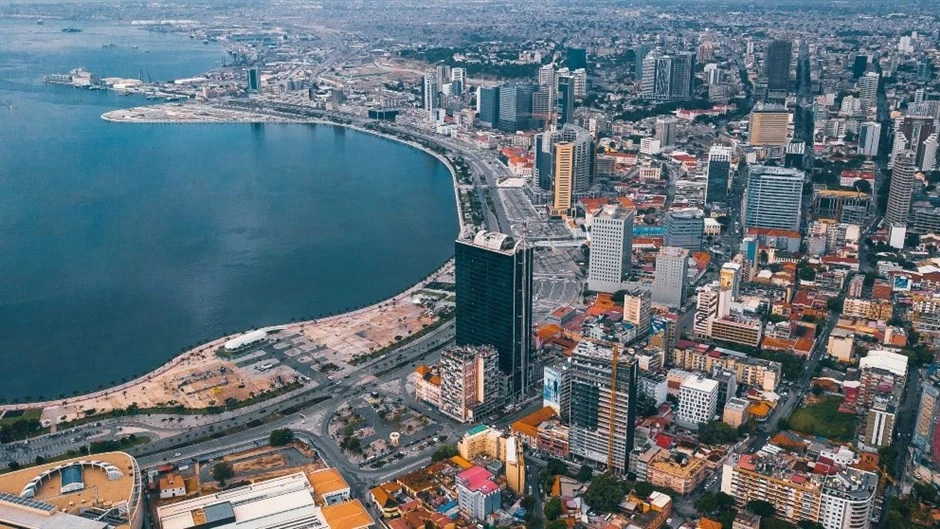1. Housing:
The cost of renting a home in Angola can vary greatly depending on the location. The capital city, Luanda, is known for its high cost of living, including expensive housing. The average cost of renting a one-bedroom apartment in Luanda can range from 500 to 2,000 euros per month or even more, depending on the neighborhood and amenities. Housing costs in other cities and rural areas are generally lower.
2. Transportation:
- Road infrastructure: Angola has made significant investments in road infrastructure, especially in urban areas. Large cities such as Luanda have a well-developed road network, but the condition of roads in rural areas can vary.
- Public transportation: Public transportation includes buses and minibuses. In the cities you will find informal shared taxis known as "candongueiros". Luanda also has a new Bus Rapid Transit (BRT) system that is an alternative to traditional public transportation.
- Private vehicles: Many residents, including foreigners, use private vehicles. However, traffic congestion can occur in large cities.
3. Health care:
- Health insurance: It is recommended that foreigners have health insurance. Some companies provide health insurance as part of their package for foreigners.
- Problems: While medical facilities in cities may be well developed, rural areas may not have access to quality medical services, so it is important to consider the proximity of medical facilities when choosing a place to live.
4. Security:
Some neighborhoods have security issues such as petty crime and theft. It is advisable to be aware of local conditions and take necessary precautions.
5. Food
The cost of groceries and dining out can also be relatively high. Imported goods are often expensive. A monthly grocery budget for one person can range from 100 to 300 euros, depending on dietary preferences and lifestyle.
Pros:
- Economic opportunities: Angola's economy, driven by the oil and gas sector, offers employment opportunities for foreigners, especially in the construction, education, and energy sectors.
- Cultural diversity: Angola is home to a variety of cultures and ethnic groups, making it an enriching and vibrant place to live.
- Natural beauty: The country boasts stunning natural landscapes, including beautiful coastlines, national parks and wildlife.
- Language: Portuguese is the official language, making it easy for Portuguese-speaking citizens to adapt to life in Angola.
- Expatriate communities: There are established expatriate communities in major cities that provide support networks and social opportunities.
Cons:
- High cost of living: The cost of living in Angola, especially in Luanda, can be significantly higher compared to many other countries.
- Infrastructure problems: Despite improvements, the country still faces infrastructure challenges that can affect access to services and transportation.
- Security issues: Security issues, such as petty crime and theft, are a concern in some areas.
- Health inequalities: There are inequalities in access to healthcare, with urban areas having better equipped medical facilities than rural areas.
- Limited opportunities for education: While international and private schools are available, the quality and affordability of education can vary.
1. Luanda: As the capital and largest city, Luanda is the economic and cultural center of the country. It offers numerous job opportunities, a diverse range of services and a vibrant cultural scene. However, the cost of living, including housing, can be high.
2. Lobito: Located on the coast, Lobito is known for its beautiful beaches and more relaxed lifestyle compared to Luanda. It has a growing expat community and offers good job opportunities in industries such as port and logistics.
3. Ouambo: Ouambo is the second largest city in Angola, with a milder climate compared to the coastal areas. It is known for its educational institutions and cultural events.
4. Benguela: Like Lobito, Benguela is a coastal city known for its beaches and laid-back lifestyle. It is also a center of the oil and gas industry.
5. Namibe: Namibe is known for its stunning desert landscapes and beaches. It is a quiet city with a focus on fishing and tourism.
1. Learning Portuguese or improving your language skills can be useful as Portuguese is the official language of Angola.
2. There are some security concerns in Angola, so be aware of local security issues. Take the necessary precautions, especially in large cities.
3. Get comprehensive health insurance that covers your medical needs while in Angola. Familiarize yourself with the available medical facilities and their quality. Make sure you have access to the medical services you need.





